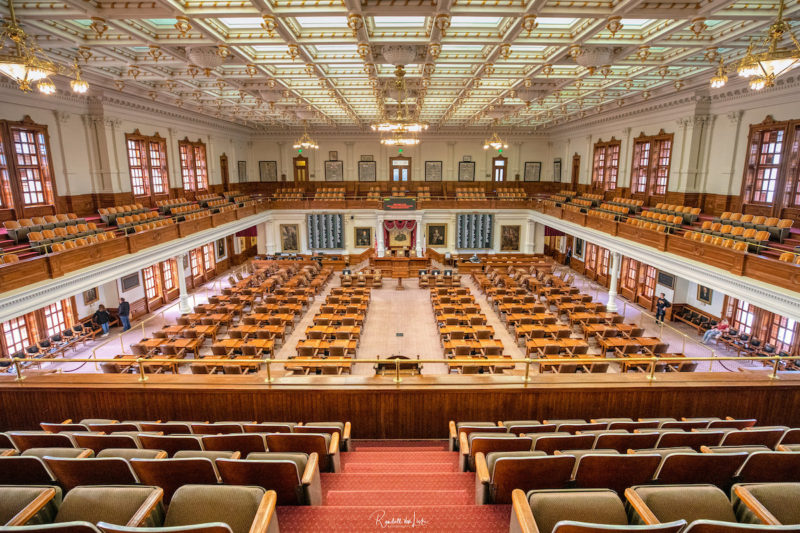The Texas Department of Family and Protective Services (DFPS) will ask the legislature for $38.9 million in new funding for the next two fiscal years in order to comply with federal court orders in the class action lawsuit M.D. v. Abbott.
Compliance in the suit is a “major challenge,” according to the agency’s biennial Legislative Appropriations Request, a formal document prepared under oversight of the Legislative Budget Board.
The long-running lawsuit culminated in a 2015 ruling that Texas violated the constitutional rights of foster children by placing them at unreasonable risk of harm. U.S. District Judge Janis Jack placed Texas’ foster care system under federal supervision in the form of court-appointed “special masters” who monitor progress on court-ordered reforms.
Texas appealed the ruling and won a ruling in July 2019 rolling back the scope of federal supervision, and some court-mandated reforms. But the appeals court left in place Judge Jack’s monitors, and required Texas to comply with certain mandates.
In the appropriations request, dated October 2, DFPS Commissioner Jaime Masters wrote, “Since July 2019 the agency has undertaken substantial efforts to implement those orders.” For example, the agency is now paying foster care providers for 24-hour awake-night supervision, and it has stepped up investigations of residential child-care placements.
Masters also cited “substantial efforts around recording sexual abuse and aggression history, among other essential, court-directed activities.”
However, court-appointed monitors reported to Judge Jack on June 15 that DFPS generally was not in compliance with her orders. At a hearing last month, the judge berated agency officials saying, “I actually am stunned by the noncompliance of the state… I keep being stunned every time we have one of these hearings.”
Masters, in a forward to her agency’s budget request, pointed out that the monitors’ June report “formed the basis of a contempt motion pending before the District Court at the time of this writing.” This justified the new funding, she suggested.
The proposed funding of $38.9 million is called an “exceptional item request” and would be spent over fiscal years 2022 and 2023, running from September 1, 2021 to August 31, 2023.
The legislature already has appropriated funds for the current fiscal year, FY 2021, which started on September 1. In the spring of every two years the state legislature meets and sets a budget for the two-year cycle that starts in the coming fall.
According to the budget proposal (LAR), the “exceptional item” breaks down into several areas, including $2.8 million for costs associated with the special monitors assigned by the court, $19.7 million for more timely investigations of residential child care facilities, and $16.5 million for heightened monitoring of facilities that show a pattern of contract or policy violations.
The agency will add 123 new staff under the exceptional item, including intervention staff, child safety responders, facility intervention staff, investigators, supervisors, quality assurance specialists, a program administrator, and a program specialist.
The investigators will “conduct high risk/high profile, complex investigations and address overdue, abandoned and/or vacant caseloads, regional spikes and backlogs, as needed.”
The budget document adds, “This item includes funding for activities required for compliance with specific federal court orders. This item will likely need to be modified to incorporate further direction from the court received prior to the legislative session or during the legislative session. DFPS will continue to update legislative offices of new developments in this case.”
Belt Tightening
Economic impacts from the coronavirus pandemic are expected to cut into state revenues. In anticipation of shortfalls, the Legislative Budget Board in May ordered agencies to reduce spending by 5% below appropriated levels in the current fiscal year. Funding for Child Protective Services was excluded from this order, but not DFPS overall.
Legislators who meet next in January might look to preserve spending cuts through 2022-2023.
Commissioner Masters wrote in her budget request, “DFPS understands the impact COVID-19 has had on state revenue and has modified its Legislative Appropriations Request for FY2022-2023 accordingly to focus solely on areas necessary to fulfill our core functions and meet… court mandates.”
The agency spent $2.1 billion in fiscal years 2019 and 2020, and it is budgeted $2.24 billion for the current fiscal year, in order to comply with the ordered 5% budget cut.
Masters wants to keep spending flat at basically that level through 2023. The grand total in the legislative appropriations request for FY 2022 is $2.22 billion, and $2.24 billion in FY 2023.
She said, “This request represents a net increase of $52.4 million in All Funds ($89.4 million in state funds), or 1.2 percent compared to FY 2020-21 expenditures, which is driven by growth in entitlement programs.”
In the last legislative session, DFPS got a funding boost that allowed it to increase salaries for adult protective services caseworkers by $9,000 per year, and increase staffing of both APS and CPS workers. Due to fewer vacancies and better staffing, APS caseworkers saw a drop in their average caseload from 33 to 20 from July 2018 to July 2020.
Likewise, the caseload for child protective investigators dropped from nearly 13 per worker in July 2018 to 10 in July 2020.
Case workers have continued to check on children throughout the pandemic. Though face-to-face child visitations were suspended in March (unless there were immediate safety concerns) they resumed once per month in May.
The next hearing in the M.D. v. Abbott lawsuit is in January, and again in March.
